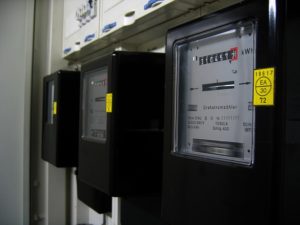

Energy
Some Energy Companies Charge for Faulty Meter Checks
SavvyWoman.co.uk, the UK’s leading money website for women, has found that customers are being charged to get their gas or electricity meter checked. Depending on their provider, customers who think their meter is faulty could be paying a hefty price to get it checked out. SavvyWoman.co.uk reported that the highest fee for a meter check is £140.
SavvyWoman.co.uk contacted eight of the UK’s top energy firms and found that some charge for meter testing upfront and will only refund the cost if the meter is faulty, others don’t charge for one of their engineers to test a meter, but do charge if the meter needs to be tested by an independent expert and isn’t faulty and some don’t charge anything if a meter needs to be tested. None of the major energy companies have any special rates or arrangements for vulnerable customers or those on a low income.
Sarah Pennells, founder of SavvyWoman.co.uk, said: “Energy companies have a duty to make sure people only pay for energy they are using. If someone is worried that their meter is faulty, they shouldn’t be put off contacting the company because of the cost of getting it tested.”
“Energy companies should not be profiting from customers who want to check that their meter is accurate. I would like to see the regulator, Ofgem, set a maximum level for meter testing charges and to force companies to make it clear that customers will only pay this charge if in-house meter testing doesn’t resolve the issue. At the moment this isn’t always made clear when a customer rings the call centre.”
The highest charges were from First Utility, which charges £130 for an electricity meter and £111 for a gas meter (£241 combined) and OVO, which charges £89.25 for an electricity meter and £138.32 for testing a gas meter (£227.57 combined), if they are tested and found not to be faulty.
SavvyWoman.co.uk found:
- British Gas: no charge for testing a potentially faulty meter. However, if you were to ask for an accuracy test because you think your meter(s) aren’t giving the correct reading, but it turns out that the meter is working correctly, you would be asked to pay a fee of, typically, between £63 and £75. This would be added to your bill.
- EDF Energy: no charge for testing a potentially faulty meter.
- E-on:no charge for tests carried out by E-on but a £93 charge per meter if it’s sent away for testing by an independent expert. The £93 charge is refunded if the meter is found to be faulty. These payments could be ‘spread across time’.
- First Utility: the vast majority of queries related to usage and meter reads can be resolved via a conversation and a photograph of the meter showing the reads. There is no charge for an engineer’s visit to check a meter if there is a fault and replacement is free. If the meter is found not to be faulty, there is a charge of £130 for an electricity meter and £111 for a gas meter.
- Ovo: customers must pay for a meter accuracy test (MAT) upfront, but Ovo will let you spread the cost if you ask for this (Ovo’s tariffs ask customers to pay for energy in advance and for their account to remain in credit, so it’s in line with their tariff). The cost for testing an electricity meter is £89.25 and the cost for testing a gas meter is £138.32. If the meter is faulty, you’ll get a refund in full and a new meter free of charge.
- nPower: No charge for checking a potentially faulty meter.
- Scottish Power: If you wanted your meter checked and it was found not to be faulty, there would be a charge of £50 for an electricity meter and £120 for a gas meter. This cost would be added to your bill.
- SSE: the first test is free but if you were to ask for a second test, it would cost £31.80 per meter, which would be added to your bill. There is no refund if the meter turns out to be faulty.
Sarah Pennells, founder of SavvyWoman.co.uk, is also calling on Ofgem to force energy suppliers to bring in special rates for vulnerable customers. She said: “I cannot believe that the prospect of paying an upfront charge of £100 or more won’t put some vulnerable customers off getting their meter tested. There should be a reduced rate for pensioners and other low income customers who receive certain benefits.”
Maria Wardrobe, from National Energy Action, said: “We agree there should be a cap on what energy firms charge for meter tests, such charges could pose a major deterrent to customers requesting a check, particularly those who are already struggling to pay their bills. Hopefully with the roll-out of smart meters customers will better understand their energy usage and suppliers should be able to recognise abnormal usage patterns that could suggest there is a fault with the meter.”
Sarah Pennells has passed the research onto Ofgem. A spokesperson from Ofgem said: “Ofgem’s rules state that suppliers must take into account a customer’s ability to pay and whether it would be fair to impose charges and the timing of refunds due to a customer.”


 Features11 months ago
Features11 months agoEco-Friendly Cryptocurrencies: Sustainable Investment Choices

 Energy11 months ago
Energy11 months agoThe Growing Role of Solar Panels in Ireland’s Energy Future

 Energy10 months ago
Energy10 months agoGrowth of Solar Power in Dublin: A Sustainable Revolution

 Energy10 months ago
Energy10 months agoRenewable Energy Adoption Can Combat Climate Change




























